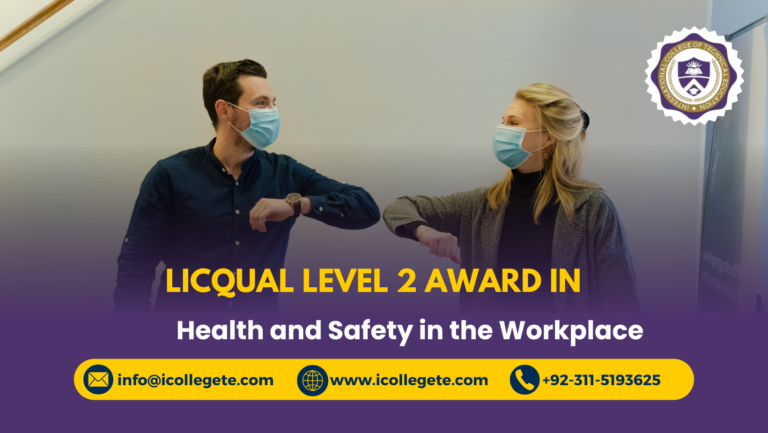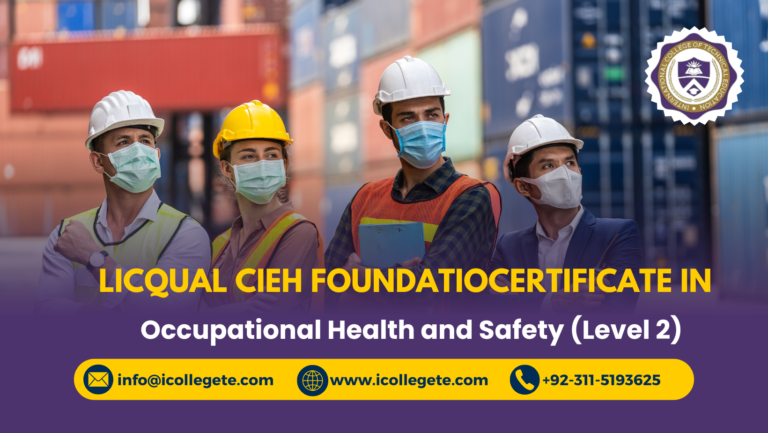The Diploma in Health and Safety Engineering is a specialized program designed to equip learners with the technical expertise and practical skills required to manage workplace safety across diverse industries. This course focuses on the principles of occupational health, safety engineering, and risk management, ensuring that graduates can effectively identify hazards, implement preventive measures, and maintain compliance with international safety standards.
Learners will gain knowledge in hazard identification, safety audits, emergency response planning, and environmental safety. The curriculum emphasizes practical applications, enabling learners to conduct inspections, design safety systems, and recommend corrective actions to reduce risks in industries such as construction, manufacturing, oil and gas, and mining.
Completing the Diploma in Health and Safety Engineering opens doors to career opportunities such as safety engineers, health and safety officers, compliance managers, and safety auditors. This qualification demonstrates a strong commitment to workplace safety and makes graduates valuable assets to organizations worldwide.
The course is divided into several units, each focusing on a specific aspect of health and safety engineering. The study units may include:
- Introduction to Health and Safety Engineering
- The role of health and safety engineers.
- Overview of the safety industry.
- Legal and regulatory framework.
- Risk Assessment and Hazard Control
- Techniques for assessing workplace risks.
- Methods for mitigating hazards and accidents.
- Health and Safety Regulations
- International and local safety standards.
- Compliance with OSHA, ISO, and other regulatory bodies.
- Engineering for Safety
- Engineering approaches to create safer workplaces.
- Safe machinery design and maintenance.
- Occupational Health and Safety
- Identifying and addressing workplace health risks.
- Management of chemical, physical, and biological hazards.
- Emergency Response and Disaster Management
- Planning for and managing emergency situations.
- First aid and rescue operations.
- Technology and Safety Engineering
- Use of technology in workplace safety management.
- Innovations and safety tools.
By the end of the course, students will have achieved the following key learning outcomes:
- In-depth Understanding of Safety Standards: Knowledge of national and international regulations, codes of practice, and safety management systems.
- Risk Management Skills: Ability to assess and manage risk in the workplace using proven methods and tools.
- Problem-Solving Expertise: Develop engineering-based solutions to reduce safety hazards and ensure compliance.
- Emergency Preparedness: Mastery in creating emergency response plans and ensuring business continuity during incidents.
- Health Monitoring: Understand how to monitor, assess, and control environmental and occupational health risks.
Completing the Diploma in Health and Safety Engineering offers a multitude of benefits:
- Enhanced Career Opportunities: With this diploma, you will have a competitive edge in the growing field of health and safety management. Employers are actively seeking qualified professionals to ensure workplace safety and reduce accidents.
- Global Recognition: Health and safety standards are universal. The skills learned in this course are applicable worldwide, giving you the flexibility to work internationally.
- Practical Knowledge: The course blends theory with practical applications, providing hands-on skills and a clear understanding of how to address safety concerns in various industries.
- Regulatory Compliance Expertise: You will gain expertise in navigating safety regulations and ensuring compliance with workplace safety laws, which is vital for any organization.
- Improved Workplace Productivity: By promoting safety, you help reduce accidents, minimize downtime, and enhance overall productivity within an organization.
The Diploma in Health and Safety Engineering is ideal for individuals who wish to pursue a career in health and safety management or engineering. It is particularly beneficial for:
- Safety Professionals: Individuals working in safety-related fields who want to enhance their technical expertise.
- Engineers: Civil, mechanical, electrical, or chemical engineers who wish to specialize in safety and risk management.
- Managers and Supervisors: Those in managerial roles who need to understand health and safety procedures to better manage teams and ensure compliance.
- Occupational Health Practitioners: Professionals aiming to specialize in workplace health and wellness.
- New Entrants: Anyone looking to start a career in the health and safety sector and make a tangible impact on workplace safety.











